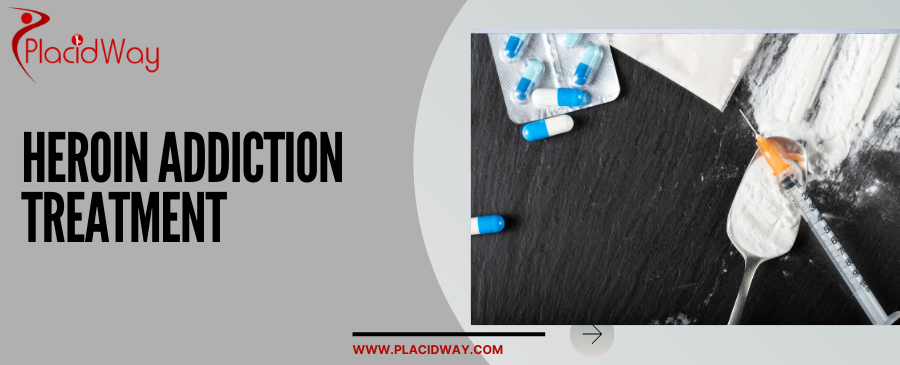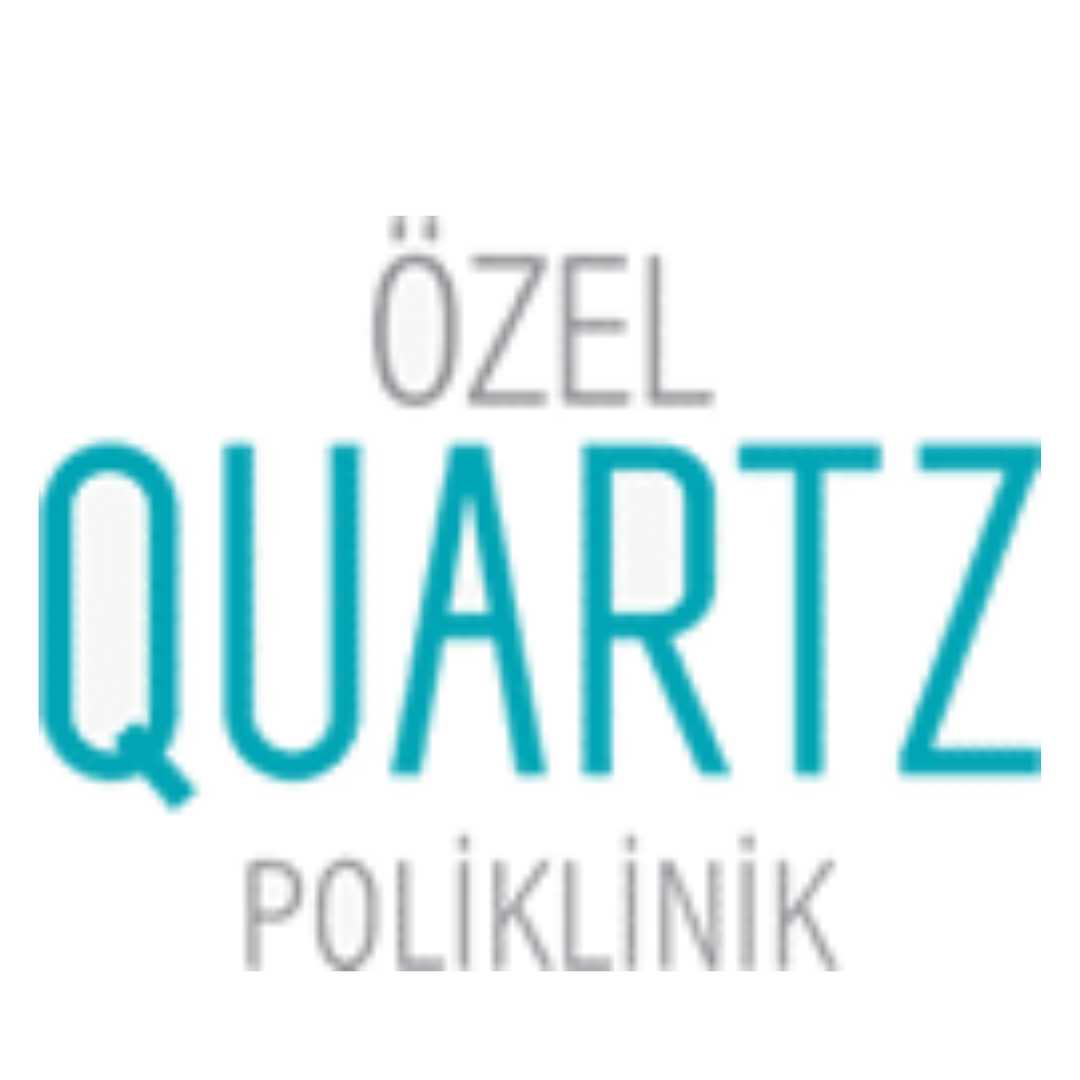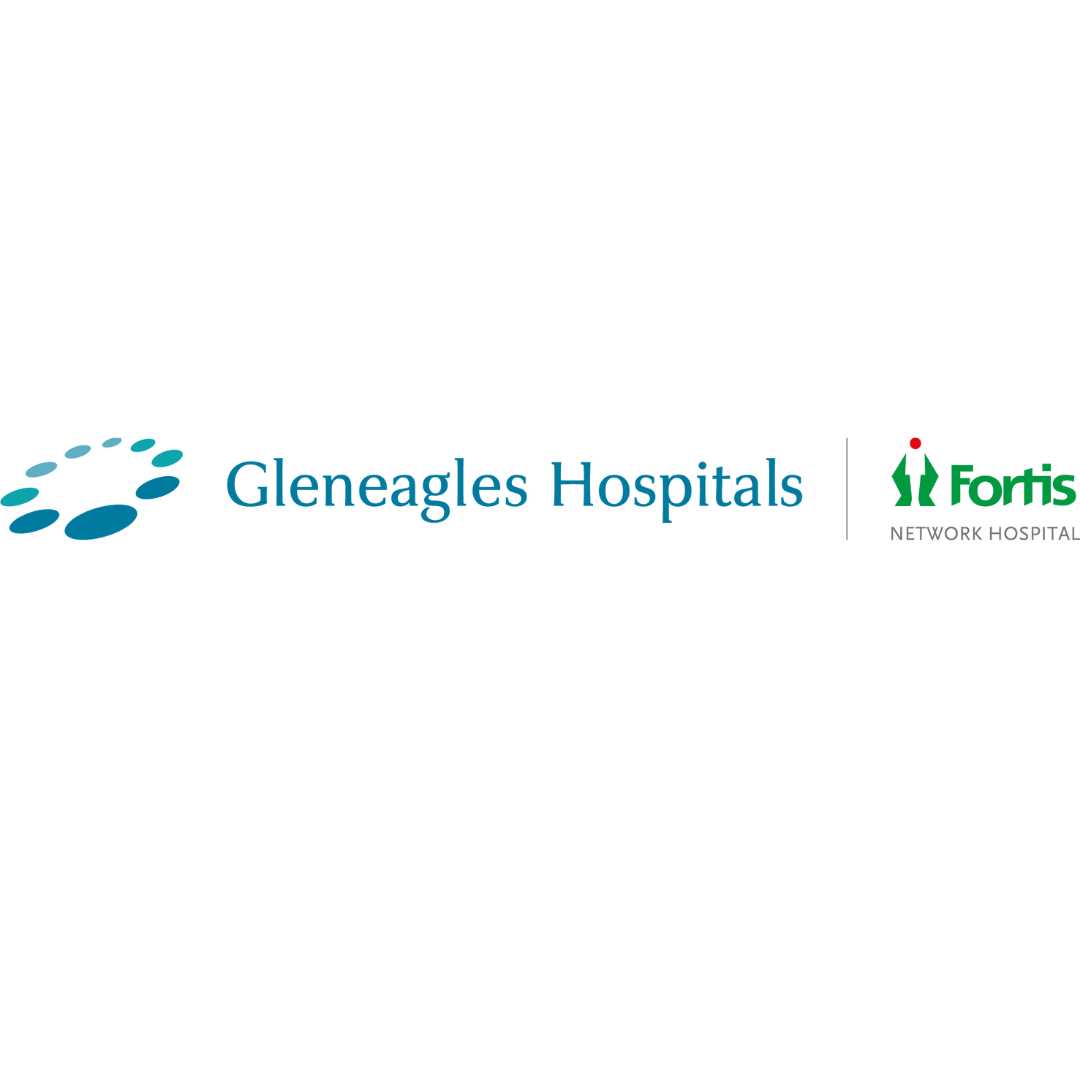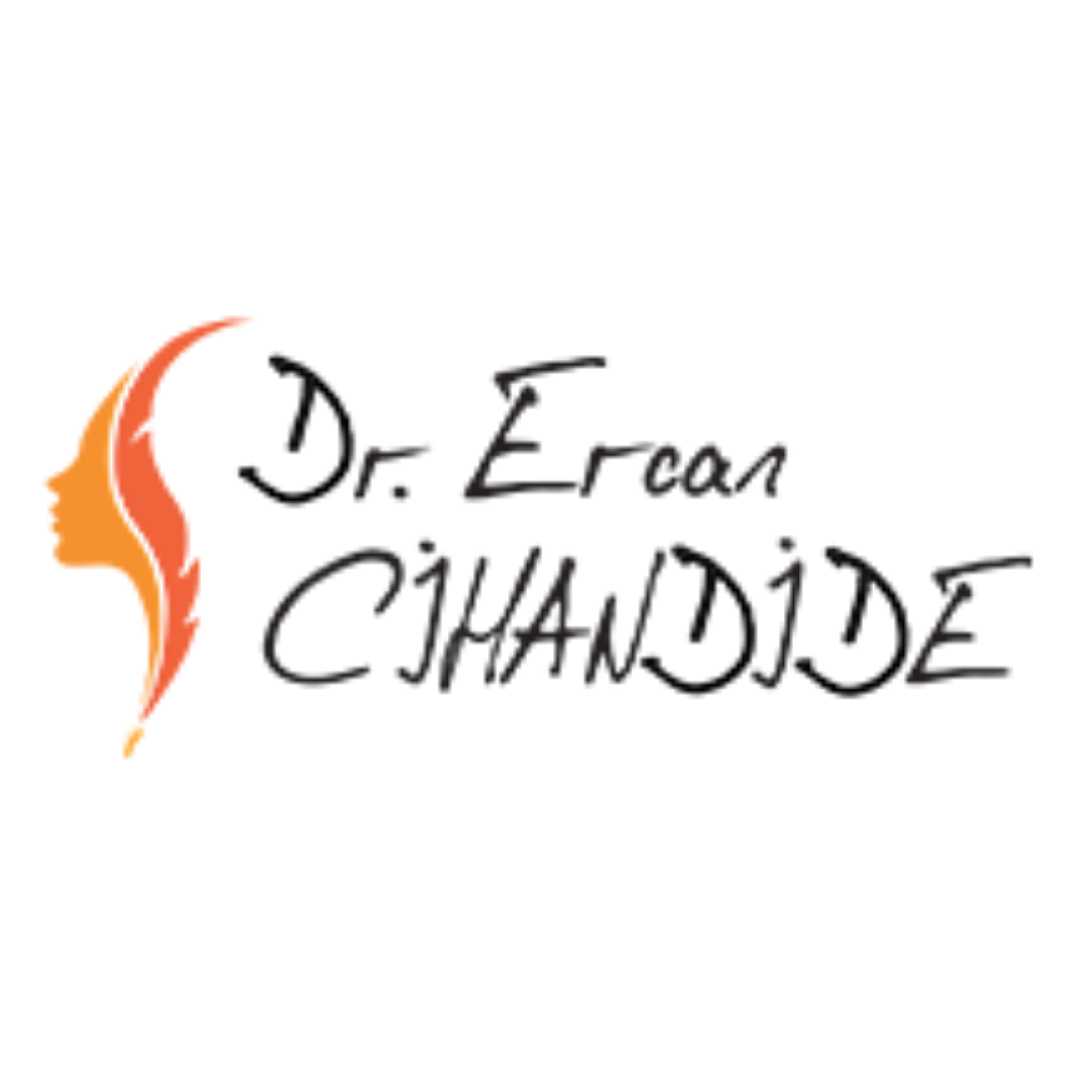
Finding Your Path to Freedom: Heroin Addiction Treatment Options
Heroin addiction is a powerful and devastating disease that can take a profound toll on individuals and their loved ones. It's a complex condition, not a moral failing, and it requires comprehensive, compassionate, and professional treatment. If you or someone you care about is grappling with heroin use, please know that hope and effective solutions are available. Millions have found recovery, and you can too.
Navigating the world of addiction treatment can feel overwhelming, especially when considering options beyond your home country. Many individuals seek heroin addiction treatment abroad for various reasons, including affordability, privacy, access to specialized programs, or simply a desire for a fresh start in a new environment. This guide will provide an in-depth look at heroin addiction, available treatments, and how medical tourism can be a viable and beneficial path to recovery.
From understanding the tell-tale signs of addiction to exploring advanced therapeutic approaches and comparing global costs, we'll cover everything you need to make an informed decision about reclaiming a healthier, substance-free life. Whether you're searching for "heroin rehab near me," "opioid addiction treatment options," or "affordable drug rehab overseas," this resource is designed to light your way.
What are the common signs and symptoms of heroin addiction?
Recognizing the signs of heroin addiction is the critical first step towards seeking help. Heroin, being an opioid, has distinct physiological and behavioral effects that become more pronounced with continued use. These symptoms can be subtle at first but typically escalate as addiction progresses. Common indicators include:
- Physical Symptoms:
- "Track Marks": Scars or scabs from injecting, often on arms, but can be anywhere.
- Constricted Pupils: Pinpoint pupils are a classic sign of opioid use.
- Drowsiness and "Nodding Off": Periods of being awake followed by suddenly falling asleep, often in inappropriate situations.
- Slurred Speech and Impaired Coordination: Difficulty speaking clearly or moving steadily.
- Flushed Skin and Itching: Heroin can cause an itchy sensation and reddening of the skin.
- Nausea and Vomiting: Especially during initial use or overdose.
- Weight Loss: Neglect of diet due to drug focus.
- Behavioral Symptoms:
- Secretive Behavior: Hiding drug use, lying about activities.
- Neglect of Responsibilities: Failing at work, school, or family obligations.
- Financial Problems: Unexplained money issues, borrowing or stealing money to support the habit.
- Changes in Friends and Activities: Dropping old hobbies or friends in favor of those who use drugs.
- Lack of Hygiene: Neglecting personal appearance and cleanliness.
- Drug Paraphernalia: Finding syringes, burnt spoons, or small bags.
- Psychological Symptoms:
- Intense Cravings: An overwhelming urge to use heroin.
- Mood Swings: Irritability, depression, anxiety, or sudden changes in demeanor.
- Withdrawal Symptoms: If unable to get the drug, symptoms like severe muscle and bone pain, insomnia, diarrhea, vomiting, cold flashes, and restless legs can occur, driving continued use.
- Loss of Control: Inability to cut down or stop heroin use despite a desire to do so.
If you observe several of these signs, it's crucial to approach the situation with empathy and seek professional advice. Early intervention significantly improves the chances of successful recovery.
What causes heroin addiction and who is most at risk?
Heroin addiction, like other substance use disorders, doesn't have a single cause. Instead, it's a complex interplay of various factors that increase a person's vulnerability to developing dependence. Understanding these factors can help in prevention and tailor effective treatment plans.
- Genetic Predisposition: Addiction often runs in families, suggesting a genetic component that can make individuals more susceptible to developing a substance use disorder if exposed to drugs.
- Mental Health Disorders: Individuals with untreated mental health conditions such as depression, anxiety, bipolar disorder, or PTSD are at a significantly higher risk. They may use heroin to self-medicate uncomfortable symptoms, leading to co-occurring disorders that complicate treatment.
- Trauma: A history of physical, emotional, or sexual trauma can greatly increase the risk of addiction. Heroin can provide a temporary escape from painful memories and emotions.
- Prescription Opioid Misuse: A significant pathway to heroin addiction is the misuse of prescription painkillers like oxycodone or hydrocodone. When these prescriptions become unavailable or too expensive, individuals may turn to cheaper, more accessible heroin, which produces a similar high. This is often searched as "opioid to heroin transition."
- Environmental Factors:
- Peer Pressure: Especially among younger individuals, social circles where drug use is common can influence experimentation.
- Poverty and Unemployment: Economic hardship can create stress, hopelessness, and boredom, leading some to drug use as a coping mechanism.
- Easy Access: Proximity to drug markets and availability of heroin can increase risk.
- Lack of Family Support or Dysfunction: A lack of strong family bonds or growing up in a dysfunctional home environment can increase vulnerability.
It's important to remember that addiction is a chronic disease, not a choice. A compassionate understanding of these risk factors is essential for providing effective support and treatment.
What types of heroin addiction treatments are available globally?
Effective heroin addiction treatment is comprehensive and addresses both the physical dependence and the underlying psychological and behavioral issues. A combination of approaches, tailored to the individual, generally yields the best results. Key treatment modalities include:
- Medical Detoxification (Detox): This is usually the first step, designed to safely manage the acute physical symptoms of withdrawal. Medical supervision is crucial as heroin withdrawal can be extremely uncomfortable and, in some cases, dangerous. Medications are often used to ease symptoms like nausea, muscle pain, and anxiety. Patients often search for "safe heroin detox" or "medically supervised withdrawal."
- Medication-Assisted Treatment (MAT): MAT combines medications with counseling and behavioral therapies. It's considered the gold standard for opioid addiction.
- Methadone: An opioid agonist that reduces cravings and withdrawal symptoms. It's typically dispensed in specialized clinics.
- Buprenorphine (often combined with naloxone as Suboxone): A partial opioid agonist that also reduces cravings and withdrawal, but with a lower risk of overdose than methadone. It can be prescribed in an office setting.
- Naltrexone (Vivitrol injection): An opioid antagonist that blocks the euphoric effects of opioids and reduces cravings. It's non-addictive and can be administered once a month via injection.
- Behavioral Therapies: These therapies help individuals identify and change problematic behaviors, develop coping skills, and address co-occurring mental health issues.
- Cognitive Behavioral Therapy (CBT): Helps patients recognize and stop negative thought patterns and behaviors that lead to drug use.
- Dialectical Behavior Therapy (DBT): Focuses on emotional regulation, distress tolerance, and interpersonal effectiveness.
- Contingency Management (CM): Provides incentives for positive behaviors, like remaining abstinent.
- Motivational Interviewing: Helps individuals resolve ambivalence about treatment and commit to change.
- Inpatient (Residential) Rehabilitation: Provides a structured, drug-free environment where individuals live at the facility, receiving intensive therapy, group counseling, and medical care. This is ideal for severe addictions or those needing a complete change of environment. Often searched as "residential heroin rehab."
- Outpatient Programs: Allow individuals to live at home while attending regular therapy sessions and medical appointments. Less intensive than inpatient, suitable for those with strong support systems and milder addictions.
- Holistic and Complementary Therapies: Many centers, especially abroad, integrate yoga, meditation, acupuncture, art therapy, and mindfulness to support overall well-being and stress reduction.
- Aftercare and Support Groups: Crucial for long-term recovery, including ongoing therapy, sober living arrangements, and participation in 12-step programs like Narcotics Anonymous (NA).
The best treatment plan is always personalized, taking into account the individual's history, severity of addiction, and specific needs.
Who is eligible for heroin addiction treatment, and what does it involve?
Eligibility for heroin addiction treatment is broad: essentially, anyone struggling with dependence on the substance is a candidate. The severity of the addiction, co-occurring mental health conditions, and physical health status will primarily determine the *type* and *intensity* of treatment recommended, rather than disqualifying someone from treatment entirely.
What Treatment Involves:
- Initial Assessment: A comprehensive medical and psychological evaluation to understand the individual's health, addiction history, and any co-occurring disorders. This helps tailor the treatment plan.
- Detoxification: As discussed, this is the first crucial step to safely eliminate heroin from the body and manage withdrawal symptoms under medical supervision. The duration depends on the severity and duration of use.
- Primary Treatment Phase (Inpatient or Outpatient):
- Inpatient Rehab: A structured, immersive environment (typically 30-90 days, but can be longer) focusing on individual and group therapy, education, skill-building, and sometimes family therapy. It removes the individual from triggers and provides 24/7 support.
- Outpatient Programs: Offer flexibility, allowing individuals to maintain work or family commitments while attending therapy sessions multiple times a week. This includes Intensive Outpatient Programs (IOP) and Partial Hospitalization Programs (PHP).
- Medication-Assisted Treatment (MAT): Often integrated throughout the primary and aftercare phases to reduce cravings and prevent relapse.
- Aftercare Planning: A vital component for long-term success, including ongoing therapy, participation in support groups (like NA), sober living arrangements, and relapse prevention strategies. This phase can last for months or even years.
No one is "too far gone" for treatment. The commitment to change, supported by a professional and comprehensive program, is the most important factor in eligibility and success. Many programs abroad specialize in welcoming international patients, offering tailored support for travel logistics and cultural considerations.
What is the recovery process and what can I expect during heroin addiction treatment?
The recovery process from heroin addiction is not a linear path but a journey of healing and growth. It's often described as a marathon, not a sprint, requiring sustained effort and commitment. Here's what you can generally expect:
- Detoxification (Days to a Few Weeks): This initial phase is often the most physically challenging. You can expect withdrawal symptoms like intense muscle aches, nausea, diarrhea, insomnia, anxiety, and severe cravings. Medical staff will provide medications to ease these symptoms and ensure your safety and comfort. While uncomfortable, getting through detox is a monumental first step.
- Inpatient or Outpatient Treatment (Weeks to Months): Once detox is complete, the focus shifts to therapy and addressing the root causes of addiction.
- Therapy Sessions: You'll participate in individual and group therapy, learning coping mechanisms, identifying triggers, and developing strategies for relapse prevention. This can be emotionally intense as you confront past traumas and unhealthy patterns.
- Skill Building: You'll learn essential life skills, communication techniques, and healthy ways to manage stress and emotions.
- Medication Management: If using MAT, you'll receive regular medication and monitoring to manage cravings and prevent relapse.
- Support System Development: You'll be encouraged to build a supportive network within the treatment community and begin connecting with peer support groups.
- Aftercare and Long-Term Recovery (Months to Years, Lifelong): This phase is crucial for sustaining sobriety.
- Continued Therapy: Regular outpatient therapy or counseling.
- Support Groups: Active participation in 12-step programs (NA, AA) or other peer support networks.
- Sober Living: For some, transitioning to a sober living environment provides continued structure and support.
- Relapse Prevention: Developing a robust plan to handle potential triggers and setbacks. Relapse is a common part of recovery for many, and it's important to view it as a signal to adjust treatment, not a sign of failure.
Throughout the process, expect emotional ups and downs. There will be moments of clarity and hope, alongside frustration, sadness, and cravings. A key expectation is to learn patience with yourself and the process. Recovery is about building a new, fulfilling life free from the grip of heroin, and it's a journey worth taking.
What are the potential risks and side effects of heroin addiction treatment?
While the benefits of heroin addiction treatment far outweigh the risks, it's important to be aware of potential challenges and side effects. Being informed helps you prepare and manage expectations during your recovery journey.
- Detoxification Risks:
- Severe Withdrawal Symptoms: Though managed medically, withdrawal from heroin can be intensely uncomfortable, including severe pain, dehydration from vomiting/diarrhea, and extreme anxiety. There's a risk of complications if not properly supervised.
- Relapse During Detox: The discomfort of withdrawal can sometimes lead individuals to relapse to alleviate symptoms, emphasizing the need for a secure, supervised environment.
- Medication-Assisted Treatment (MAT) Side Effects:
- Methadone: Can cause constipation, sweating, drowsiness, and has a risk of respiratory depression if misused. Requires careful dosage and monitoring.
- Buprenorphine/Naloxone (Suboxone): Side effects can include headache, nausea, constipation, and numbness in the mouth. There's also a risk of precipitated withdrawal if taken too soon after other opioids.
- Naltrexone: Can cause nausea, headache, dizziness, and fatigue. It's crucial to be opioid-free for 7-10 days before starting naltrexone to avoid severe withdrawal.
- Emotional and Psychological Challenges:
- Emotional Discomfort: Therapy often involves confronting difficult emotions, past traumas, and unhealthy patterns, which can be painful and distressing.
- Co-occurring Mental Health Worsening: Sometimes, underlying mental health conditions may appear or worsen as the effects of heroin wear off, requiring integrated treatment.
- Risk of Relapse: This is arguably the biggest risk in addiction recovery. Relapse is a common aspect of the chronic disease model of addiction, and it’s not a sign of failure but a signal to adjust treatment strategies. It carries the risk of overdose, especially after a period of abstinence when tolerance has decreased.
- Risks Associated with Treatment Abroad (if not carefully chosen):
- Quality Concerns: Unaccredited clinics, unqualified staff, or substandard medical care.
- Communication Barriers: Language differences can hinder effective therapy.
- Legal/Visa Issues: Complications with immigration or local laws.
- Lack of Aftercare Coordination: Difficulty arranging follow-up care upon return home.
By choosing accredited and reputable treatment centers, thoroughly vetting medical providers, and engaging fully in the treatment process, these risks can be significantly mitigated, paving the way for a safer and more successful recovery.
How much does heroin addiction treatment cost worldwide, and what's included?
The cost of heroin addiction treatment is a significant factor for many seeking help. Prices can vary dramatically based on the country, the type of facility (luxury vs. standard), duration of stay, and the comprehensiveness of the program (e.g., medical detox, MAT, types of therapy, holistic offerings). Here’s a general comparison:
Worldwide Cost Comparison for Heroin Addiction Treatment (per 30-day program)
| Region/Country | Average Cost Range (USD) | Typical Inclusions |
|---|---|---|
| United States/Canada | $15,000 - $60,000+ | Medical detox, inpatient accommodation, individual/group therapy, MAT, some holistic therapies, aftercare planning. Luxury facilities can exceed $100,000. |
| Western Europe (UK, Germany) | $10,000 - $40,000+ | Similar to North America, high standards, often private and exclusive. Public healthcare systems offer options but may have waiting lists or less intensive private care. |
| Mexico | $3,000 - $12,000 | Medical detox, private or semi-private rooms, therapy (individual/group), MAT, nutritious meals, sometimes alternative therapies (e.g., yoga, spa access). Known for affordability and quality. |
| Thailand | $4,000 - $15,000 | Detox, residential stay, comprehensive therapy, diverse holistic therapies (meditation, massage), fitness programs, often in resort-like settings, cultural immersion. |
| India | $2,500 - $8,000 | Medical supervision, accommodation, meals, counseling, some holistic approaches. Extremely cost-effective for quality care. |
| Eastern Europe (e.g., Ukraine, Poland) | $3,000 - $10,000 | Detox, residential care, individual/group therapy, often modern facilities with experienced staff, strong medical focus. |
| South Africa | $5,000 - $15,000 | Detox, residential treatment, extensive therapy, often integrated with outdoor activities and unique natural settings. |
What's Generally Included: Most inpatient programs will cover medical detoxification, full room and board, all meals, individual and group therapy sessions, educational workshops, medication management, and basic recreational activities. Luxury centers may include private chefs, spa treatments, advanced fitness facilities, and exclusive one-on-one therapy. It's crucial to get a detailed breakdown of costs and what's included from any facility you consider.
Why consider heroin addiction treatment abroad?
For many individuals and families, seeking heroin addiction treatment abroad is not just an option but a preferred solution. Here are compelling reasons why medical tourism for addiction is gaining traction:
- Affordability: As seen in the cost comparison, treatment in countries like Mexico, Thailand, India, and parts of Eastern Europe can be significantly more affordable than in Western countries, often for comparable or even superior quality of care. This makes comprehensive, longer-term treatment accessible to a wider range of people. Patients often search for "affordable heroin rehab overseas."
- Privacy and Anonymity: Traveling abroad offers a high degree of discretion, especially for public figures or those who simply wish to keep their recovery journey private from their local community or workplace. Starting anew in an unfamiliar place can reduce stigma and allow for a more focused recovery.
- Escape from Triggers and Negative Influences: One of the most powerful benefits is the complete change of environment. Removing oneself from the people, places, and situations associated with drug use can be incredibly effective in breaking cycles of addiction and establishing new, healthy routines. This fresh start is often invaluable.
- Access to Specialized Programs and Therapies: Some international clinics offer unique or specialized treatment approaches, including advanced holistic therapies, cultural immersion, or specific dual-diagnosis programs that might not be readily available or affordable at home.
- Reduced Waiting Times: In some countries, national healthcare systems can have long waiting lists for addiction treatment. Traveling abroad often provides immediate access to high-quality care, which can be critical for someone ready to begin their recovery journey.
- Higher Quality and More Intensive Care: Many international facilities pride themselves on patient-centered care, offering smaller patient-to-staff ratios, more individualized attention, and longer program durations, which are often correlated with better outcomes.
Choosing to seek treatment abroad is a courageous decision that can open doors to effective, transformative recovery in an environment conducive to healing.
Which countries offer the best value for heroin addiction treatment?
When seeking "best value drug rehab abroad" or "most affordable heroin treatment," several countries consistently stand out for offering high-quality care at a more accessible price point. These destinations combine experienced medical professionals, comprehensive programs, and supportive environments, often with added benefits like scenic locations and unique therapeutic approaches.
- Mexico:
- Why: Proximity to the U.S. (reducing travel costs and time), often English-speaking staff, high-quality medical detox, and a range of therapy options. Facilities often combine traditional Western medicine with warm hospitality and a focus on overall well-being.
- Value: Significantly lower costs than the U.S. for comparable or more intensive care.
- Thailand:
- Why: Renowned for its luxurious, discreet, and holistic rehabilitation centers, often set in tranquil, beautiful environments. Offers a strong focus on mindfulness, meditation, and physical well-being alongside evidence-based therapies.
- Value: World-class facilities and highly personalized care at a fraction of Western prices, providing a truly immersive healing experience.
- India:
- Why: A burgeoning medical tourism destination known for its highly skilled medical professionals and extremely cost-effective care. Offers both traditional Western psychiatric and addiction therapies alongside ancient Indian practices like Ayurveda and Yoga.
- Value: Exceptionally low costs for medical detox and long-term rehab, making extended stays affordable and effective.
- Eastern Europe (e.g., Ukraine, Poland):
- Why: Emerging as strong contenders for medical tourism, these countries offer modern medical facilities, European standards of care, and experienced addiction specialists. They provide a more medical-focused approach, often including advanced detox protocols and strong psychological support.
- Value: Competitive pricing for high-quality, comprehensive medical and therapeutic interventions, often with shorter waiting times.
- South Africa:
- Why: Offers a unique blend of high-standard medical care with stunning natural landscapes. Many rehabs incorporate outdoor adventure therapy and a strong community focus, providing a truly immersive and restorative environment.
- Value: Excellent standard of care at a more affordable rate than Western countries, with the added benefit of a unique cultural and environmental experience.
When selecting a country, consider not only cost but also the specific treatment philosophy, language support, aftercare planning, and personal comfort with the culture and travel. Researching "top international rehab centers" can provide more specific options.
What should I expect when traveling for heroin addiction treatment, and how can I ensure safety and quality?
Traveling for heroin addiction treatment requires careful planning, but with the right preparation, it can be a smooth and highly beneficial experience. Here’s what to expect and how to ensure your safety and the quality of care:
What to Expect When Traveling:
- Pre-Treatment Assessment: Most reputable facilities will conduct a thorough medical and psychological assessment remotely before you travel to ensure they can meet your needs.
- Travel Logistics Support: Many international rehabs, especially those catering to medical tourists, offer assistance with travel arrangements, including airport transfers, visa guidance, and accommodation for accompanying family members.
- Arrival and Orientation: Upon arrival, you'll typically undergo a medical intake, settle into your accommodation, and be introduced to the staff and facility.
- Cultural Adjustment: Be prepared for cultural differences. While many facilities are accustomed to international patients, understanding local customs and a potentially new language (though English-speaking staff are common) is beneficial.
- Communication: Clarify how you will communicate with your family and loved ones during treatment. Some programs have specific communication policies to maintain focus on recovery.
- Aftercare Planning: A good program will begin planning your aftercare early, including connections to local resources or virtual support for when you return home.
How to Ensure Safety and Quality:
- Accreditation and Licensing: Verify that the facility is licensed by the relevant local health authorities and, if possible, holds international accreditations (e.g., JCI, CARF). These signify adherence to international standards of care.
- Staff Qualifications: Research the credentials and experience of the medical doctors, therapists, and support staff. Are they licensed in their fields? Do they have experience with opioid addiction specifically?
- Treatment Approach: Ensure the facility uses evidence-based treatment methods (e.g., MAT, CBT) and offers a comprehensive program including detox, therapy, and aftercare planning. Be wary of "rapid detox" or unproven methods that promise quick fixes.
- Patient Testimonials and Reviews: Look for independent reviews and patient success stories. These can provide valuable insights into the real experiences of others.
- Transparency in Costs: Get a detailed breakdown of all costs upfront, including what is and isn't included. Avoid facilities with hidden fees.
- Language Support: Confirm that English-speaking staff (or staff fluent in your native language) will be available, particularly for therapy sessions.
- Emergency Protocols: Ask about emergency medical procedures and proximity to hospitals.
- Medical Tourism Facilitators: Consider using a reputable medical tourism company like PlacidWay. They vet clinics, assist with travel and communication, and act as an advocate, helping you navigate the process safely and effectively. They help ensure quality by partnering with trusted providers.
By taking these steps, you can significantly reduce risks and increase your chances of a safe, effective, and transformative treatment experience abroad.
Are there real patient success stories for heroin addiction treatment abroad?
While specific individual stories are often kept confidential due to privacy, the medical tourism industry for addiction treatment is built upon a foundation of countless success stories. Many individuals who felt hopeless in their home countries have found a new lease on life by seeking heroin addiction treatment abroad.
Common Themes in Patient Success Stories:
- The Power of a Fresh Start: Patients frequently report that being away from their usual environment, social circles, and daily triggers was crucial. One former patient, "David," shared how leaving his hometown for a clinic in Thailand allowed him to truly focus on himself for the first time in years, without the constant pressure and temptations he faced at home.
- Comprehensive and Holistic Care: Many success stories emphasize the integrated approach found abroad. For instance, "Sarah," who recovered from heroin addiction in Mexico, often speaks about how the combination of medically supervised detox, intensive CBT, and daily yoga helped her heal both physically and mentally. The focus wasn't just on stopping drug use, but on rebuilding her entire life.
- Compassionate and Dedicated Staff: Testimonials often highlight the personalized attention and genuine care received from staff members. "Maria," a recovering addict from Eastern Europe, credits her therapists and medical team with helping her navigate the most difficult parts of withdrawal and emotional processing, making her feel supported every step of the way.
- Affordability and Accessibility: For many, the ability to afford high-quality, long-term treatment abroad (as opposed to short, expensive stints at home) was a key factor in their success. This allowed them to stay in treatment for a longer duration, providing the time needed for genuine change to take root.
- Renewed Hope and Purpose: Perhaps the most profound aspect of these success stories is the transformation from despair to a life filled with purpose. Individuals who once felt trapped by heroin addiction often return with new skills, a deeper understanding of themselves, and a commitment to maintaining sobriety and helping others.
These stories, while anecdotal, paint a consistent picture: for the right individual, heroin addiction treatment abroad offers a unique and highly effective pathway to lasting recovery. The key is to find a reputable program that aligns with your needs, and trusted facilitators like PlacidWay can connect you with these proven success-driven centers.
Take the Next Step with PlacidWay
Ready to explore treatment options abroad? Discover top clinics, compare prices, and get a free quote tailored to your needs with PlacidWay.





.png)
.png)
.png)
.png)

Share this listing